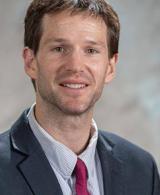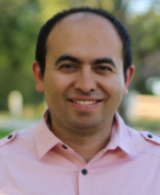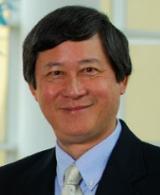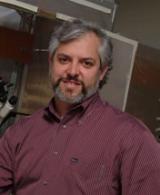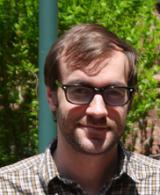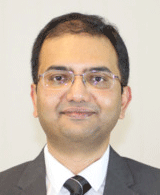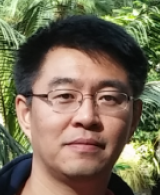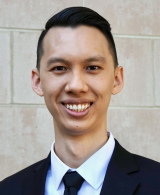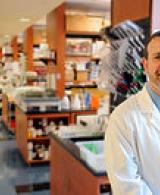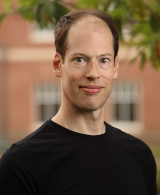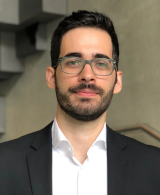There is currently no content classified with this term.
Systems Biology
Associate Professor
The Blazeck Lab tackles challenges at the interface of immunology, engineering, and metabolism to improve human health. We utilize our expertise in cellular and protein engineering to control biological function and to develop novel therapies to fight disease.
Associate Professor
The application of quantitative techniques and mathematical modeling to plants in order to gain systems-level insight into their physiology and development, particularly to understanding how metabolic and gene regulatory networks interact to control growth.
Assistant Professor
Assistant Professor
Director of Translational Clinical Informatics
Assistant Professor
Professor
Computational biochemical network modeling, role of oxidative stress in immunology and cancer, signal transduction, and proteomic technologies.
Regents' Professor
Bioengineering, fluid mechanics, biofluid mechanics, medical devices, medical implants, translational technology, and entrepreneurship.
Marcus Professor of Cystic Fibrosis
Molecular physiology of ion channels and receptors, with emphasis on epithelial chloride channels. Our specific focus is the pathophysiology of Cystic Fibrosis, including the structure/function of CFTR and its many roles in the airway.
Associate Professor
We are interested in understanding the genetic basis of heritable behavioral variation. In the current age, it has become cheap and easy to catalog the set of genetic differences between two individuals. But which genetic differences are responsible for generating differences in innate behaviors, including liability to neurological diseases such as autism, bipolar disease, and schizophrenia? How do these causative genetic variants modify a nervous system? Besides their role in disease, genetic variation is the substrate for natural selection. To understand how behavior evolves, we must understand how it varies.
Professor
The major research focus of my research is on biomechanics and motor control of locomotion and reaching movements in normal as well as in neurological and musculoskeletal pathological conditions. In particular, we study the mechanisms of sensorimotor adaptation to novel motor task requirements caused by visual impairament, peripheral nerve or spinal cord injury, and amputation. We also investigate how motor practice and sensory information affect selections of adaptive motor strategies.
Assistant Professor
Director, BioEngineering Graduate Program
Professor
Systems biology, bioinformatics, metabolism, and metabolomics.
Professor
Biomedical systems, metabolic pathways, biochemical systems theory, and S-systems.
Deputy Director, BioEngineering Graduate Program
Our research focuses on applying systems analysis approaches and engineering tools to identify novel clinical therapeutic targets for complex diseases. It is challenging to develop new treatments for these diseases, such as Alzheimer's disease (AD) and Traumatic Brain Injury (TBI), because they do not have a single genetic cause and they simultaneously present broad physiologic changes. By combining novel engineered in vitro platforms, mouse models, and multivariate computational systems analysis, we will be able to 1) capture a holistic systems-level understanding of complex diseases, and 2) isolate specific mechanisms driving disease. The ultimate goal of our laboratory is to use these tools to identify new mechanisms driving disease onset and progression that will translate to effective therapeutic strategies.
Professor
Focused on the study of aquatic chemical ecology, Dr. Jeannette Yen’s lab employs graduate and undergraduate students alike in the pursuit of understanding marine zooplankton interaction, behavior, morphology, ecology and reproductive strategies. Current research topics range from the study of harmful algal blooms effect on marine copepod behavior to understanding the swimming behavior and hydrodynamics.
Associate Professor
My research interest is focused on using computer simulations of biological systems to understand and predict the human health effects of environmental and pharmaceutical perturbations. These perturbations, elicited by environmental chemicals, dietary supplements, and drugs, can alter the dynamics of the molecular circuits and networks operating in cells, leading to multiple disease endpoints. In close collaboration with experimental biologists and toxicologists, I develop mechanistically based computational systems biology models of cellular biochemical pathways and organism-level control systems.
Department Chair Emeritus
Bioengineering aspects of vascular biology, thrombosis, inflammatory response, and infectious disease Cellular engineering
Individuality, neural engineering, connecting brain and behavior
Cellular Engineering
Bioengineering(Mechanical Engineering)
Microphysiological System, Drug Delivery, Microfluidic
Translational medicine, systems biology, microfluidics, medical devices and instrumentation
Space habitability, model-based systems engineering, neuroscience, cognitive engineering
Professor of Chemistry and Biomedical Engineering
BioImaging, Systems Biology, Nanotechnology
Assistant Professor
Assistant Professor
Biomaterials, Systems Biology
Assistant Professor, School of Biological Sciences
Assistant Professor
Pharmaceuticals and Drug Delivery, nanotechnology, and systems biology.

